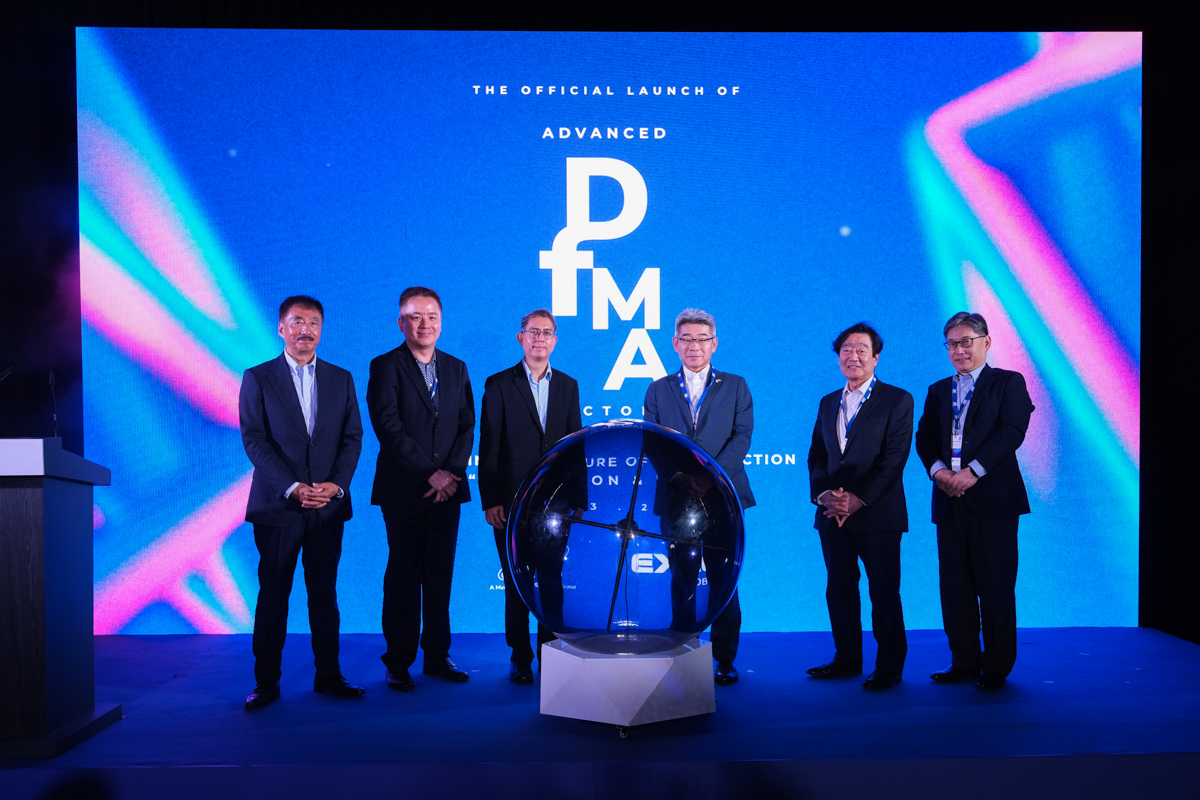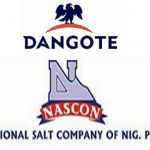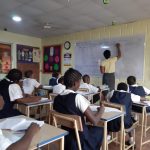Media OutReach
Leng Aik Engineering Launches Advanced DfMA Factory For Prefab MEP Systems

Developed with the support of Building and Construction Authority (“BCA”) and A*STAR Singapore Institute of Manufacturing Technology (“A*STAR SIMTech”), the factory utilises automation, robotics and AR technologies to improve quality control, efficiency, safety and accuracy.
SINGAPORE – Media OutReach Newswire – 27 March 2025 – Leng Aik Engineering Pte Ltd (“LAE”), a wholly owned subsidiary of EXEO Global Pte Ltd, the global headquarters of Tokyo Stock Exchange Prime Market listed EXEO Group, Inc. has just launched an Advanced Design for Manufacturing and Assembly (“DfMA”) Factory for Prefabricated Mechanical, Electrical & Plumbing (“Prefab MEP”) Systems today.
The factory, located on the 4th floor of LAE’s Soon Lee Road premises, aims to transform traditional MEP processes into a seamless, efficient, and technology-driven workflow, replacing labour-intensive, on-site construction with digitally optimised, factory-controlled manufacturing.
Uniting Japanese Engineering Excellence with Singapore’s Innovation and Expertise
LAE has been a trusted name in the industry for over 20 years, specialising in Electrical, Plumbing & Sanitary, and Integrated Building Services for maintenance and system upgrades. Since its acquisition by EXEO Group, Inc. in 2018, the company has been building upon its strong technical expertise and capabilities, pursuing excellence in its engineering skills and driving innovation to meet the constantly evolving demands of the industry.
During the COVID-19 pandemic, the built environment sector suffered greatly due to its heavy reliance on foreign labour. In its resolve to find ways to counter future pandemics, the team led by Mr Kimura Setsuya, Managing Director of LAE, was introduced to DfMA methods and studied it intensively, before embarking on the journey to invest in the development of the Advanced DfMA Factory.
Mr Kimura Setsuya, Managing Director of LAE shared, “The Singapore Government’s forward-looking initiatives outlined in the refreshed Built Environment Industry Transformation Map (BE ITM)) and its support in helping firms adopt DfMA technologies inspired us to take the leap forward to transform our business. We’re proud to launch our Advanced DfMA Factory today, and hope that this will help benefit and drive continued innovation and transformation of the industry.”
With the strong support from BCA, LAE successfully received Productivity Innovation Project (“PIP”) funding approval for the DfMA factory project in July 2024 and kickstarted its development.
Mr Kelvin Wong, CEO of BCA, shared, “I would like to congratulate EXEO Global and Leng Aik Engineering on the opening of their new Prefabricated Mechanical, Electrical & Plumbing (Prefab MEP) facility. The adoption of Robotics and Automation (R&A) and Integrated Digital Delivery (IDD) to enhance the fabrication and installation processes of Prefab MEP modules will improve production efficiency and quality. We look forward to more built environment firms leveraging R&A and IDD to boost productivity.”
Through the development journey, LAE worked closely with A*STAR SIMTech on recommendations to integrate technology tools and equipment into the factory floor and workflow. For example, A*STAR SIMTech conducted a comprehensive automation assessment using value stream mapping and process flow analysis, to identify opportunities for robotic and automated solutions. These insights enabled LAE to deploy solutions that optimise factory operations and meet production capacity goals.
A Technology-Driven Approach to MEP
At the Advanced DfMA Factory, LAE leverages Integrated Digital Delivery (IDD) technologies to create a seamless, end-to-end digital workflow, ensuring greater efficiency, and real-time workflow monitoring throughout the modular construction and installation lifecycle.
The factory aims to provide its clients with One-Stop Prefab MEP Solutions using tools such as robotic welding, laser cutting, AR-driven inspection and automation to ensure the delivery of high-precision modules to the built environment sector.
The factory’s motto “Innovation and Kaizen” reflects its resolve to continue to explore new technologies and initiatives with A*STAR SIMTech, to ensure that it continually adopts modern and innovative construction methodologies and equipment that meet the needs of the ever-evolving industry.
For more information on LAE’s Prefab MEP solutions, please reach out to la*@*****ik.com
Hashtag: #LengAik #EXEO #EXEOGlobal
![]() https://www.lengaik.com/
https://www.lengaik.com/![]() https://www.linkedin.com/company/exeo-global/
https://www.linkedin.com/company/exeo-global/
The issuer is solely responsible for the content of this announcement.
About Leng Aik Engineering Pte Ltd
Leng Aik Engineering has been a trusted name in the industry for over 20 years, specialising in Electrical, Plumbing & Sanitary, and Integrated Building Services for maintenance and system upgrades. With a strong foundation in technical expertise and a forward-looking approach, the company has expanded its capabilities to meet the evolving demands of the industry.
Leng Aik Engineering is a wholly owned subsidiary of EXEO Global Pte Ltd, the global headquarters for international business for Tokyo Stock Exchange Prime Market listed EXEO Group, Inc.
For more information on Leng Aik Engineering, please visit ![]() www.leng-aik.com
www.leng-aik.com
About EXEO Global Pte Ltd
EXEO Global Pte Ltd is global headquarters for international business for Tokyo Stock Exchange Prime Market listed EXEO Group, Inc, facilitating the operational and strategic management of overseas subsidiaries for the Group outside of Japan.
It’s parent company, EXEO Group, Inc is a key member of the Information & Telecommunications Engineering Association of Japan (ITEA) in Japan and currently employs more than 17,000 staff worldwide.
EXEO Global’s primary business is in Managed IT services and the company currently has subsidiaries in the space of M&E engineering services and ICT Infrastructure running operations globally. EXEO Global also continually invests in new businesses and technologies that complement the offerings of the Group’s companies.
For more information on EXEO Global, please visit ![]() www.exeo-global.com
www.exeo-global.com
For more information on EXEO Group, Inc., please visit ![]() www.exeo.co.jp/en
www.exeo.co.jp/en
Media OutReach
Compax MVNE continues to support Airalo’s eSIM platform
Airalo and Compax have extended their partnership for another five years, ensuring Airalo continues to run on the powerful Compax backend platform. This technology allows Airalo to quickly launch and manage data plans across more than 200 destinations. By using the Compax real-time charging system, Airalo can accurately track data usage and set custom pricing independently, without having to rely on the technical systems of local phone carriers. This total control ensures that Airalo can offer its 20 million users the most flexible and competitive travel eSIM rates on the market.
Compax is proud to support Airalo as it continues to launch new products and services, ensuring its 20M+ customers can stay connected seamlessly across more than 200 destinations, regardless of their travel plans.
“At Airalo, our goal is to provide our customers with reliable connectivity and a seamless experience. Extending our partnership with Compax MVNE for another five years ensures we have the technical foundation to keep that promise,” explained Peter Nussbaumer, VP of Networks at Airalo. “Compax MVNE’s platform gives us the independence to launch new products and manage complex global data plans in real-time, allowing us to stay agile and focus on what matters most: keeping our 20 million users connected, no matter where their journey takes them.”
“The Airalo team set out to transform the way travelers enjoy connectivity abroad forever and they are not falling short on their goal. It’s an absolute pleasure for us to be a part of their journey and assist them on their mission. Connectivity is at the heart of everything we do in our modern ways of life and the Airalo offering is perfectly tuned to that beat.” said Werner Kohl, CEO of Compax.
Hashtag: #CompaxMVNE
The issuer is solely responsible for the content of this announcement.
About Compax
Compax is a leading BSS/OSS software provider for the telecommunications industry. Its business software suite covers the full spectrum required to cover areas such as DSL, FTTH, MVNO and related industries: Apps and portals for customer orders and selfcare, convergent product catalog, CPQ, order management, CRM, contact center, billing, accounting, payments, online charging, and retail management. Compax enables operators to bring new services, offers, and brands to market with a quick turnaround and covering B2B, B2C, and B2B2X scenarios. Relying on proven agile methodology, Compax successfully serves top brands around the globe.
About Airalo
Airalo, founded in 2019, is the world’s largest travel eSIM platform. Trusted by over 20 million travelers, Airalo offers eSIM packages in 200+ destinations, empowering users to connect to mobile networks worldwide instantly. With a remote team of over 300 people, spanning more than 50 countries, Airalo is committed to making mobile connectivity on the move easier, more affordable, and accessible to all.
Media OutReach
Many happy returns as Kai Tak Sports Park celebrates first anniversary

Over 120 event days in first year of operation
HONG KONG SAR – Media OutReach Newswire – 2 March 2026 – Hong Kong’s Kai Tak Sports Park (KTSP) celebrated its milestone first anniversary on Sunday (1 March), successfully hosting nearly 50 major events and delivering over 120 international and local sports and entertainment days since its grand opening.
KTSP has established a unique identity as the city’s new “Home Venue” for major sports and entertainment events. Highlights have included the Hong Kong Sevens (rugby), the Hong Kong Football Festival featuring top teams such as Liverpool, AC Milan, Arsenal and Tottenham Hotspur, as well as concerts by British rock band Coldplay, Mandopop rock band Mayday, singer Jay Chou and global pop icons BLACKPINK.
Sports activities at the Park have welcomed more than 840,000 participants so far. In terms of sports activities, the three major facilities—Kai Tak Stadium, Kai Tak Arena and Kai Tak Youth Sports Ground—together with the bowling centre, outdoor sports facilities and open spaces in the precinct, are expected to surpass 200 event days from the Park’s opening through to the end of March 2026.
In the past year, the utilisation rates of the Kai Tak Stadium and Kai Tak Arena have reached close to 90%. Kai Tak Stadium has already attracted over 1.8 million attendees, rapidly becoming a powerful new driving force in advancing Hong Kong’s sports industry, events economy, and tourism development.
“Our first anniversary is not only a major milestone for Kai Tak Sports Park, but also a moment of pride for Hong Kong. Over the past year, we witnessed athletes’ determination, outstanding performances from artists, and the unforgettable energy of cheering audiences. Each event has touched and inspired us.
“As Hong Kong’s largest integrated sports, leisure and entertainment landmark, we are committed to bringing the community together while strengthening Hong Kong’s connection with the Greater Bay Area and the international stage,” said a spokesperson for KTSP.
The centerpiece 50,000-seat Kai Tak Stadium was ranked third in the world and top in Asia for total ticket sales in 2025 just nine months after its debut, according to Pollstar’s 2025 year-end stadium charts (published mid-December 2025). Pollstar also ranked Kai Tak Stadium No.5 worldwide and No.1 in Asia for total gross revenue (1.25 million passes worth US$191.34 million). Meanwhile, the 10,000-seat Kai Tak Arena, was ranked Asia’s No. 8 in terms of total gross revenue.
“Seeing the Park evolve over the past year into a major sports destination for Hong Kong has been incredibly inspiring,” said Hong Kong, China karatedo team former representative, Lee Chun Ho. “Every time I walk in, I can feel the energy. The professional facilities not only support large-scale events but also make it easier for the public to access different sports, whether they’re beginners or experienced enthusiasts.”
With an expanding line‑up of exciting events, enhanced visitor experiences and an increasingly compelling programme of global attractions, KTSP will further advance the integration of culture, sports and tourism, ushering in an even brighter and more vibrant chapter for Hong Kong.
Hashtag: #HongKong #BrandHongKong #KTSP #Sports #Entertainment #Landmark #MegaEvents
![]() https://www.brandhk.gov.hk/
https://www.brandhk.gov.hk/![]() https://www.linkedin.com/company/brand-hong-kong/
https://www.linkedin.com/company/brand-hong-kong/![]() https://x.com/Brand_HK/
https://x.com/Brand_HK/![]() https://www.facebook.com/brandhk.isd
https://www.facebook.com/brandhk.isd![]() https://www.instagram.com/brandhongkong
https://www.instagram.com/brandhongkong
The issuer is solely responsible for the content of this announcement.
Media OutReach
Green SM Named “Best EV Carpooling App” In the Asia-Pacific Region
Award recipients are evaluated entirely based on independent performance data, including key indicators such as downloads, monthly active users (MAU), growth rates, in-app purchase revenue, and user engagement. These metrics reflect sustained operational effectiveness and performance over time. Green SM’s recognition not only marks a breakthrough for the brand but also demonstrates consistent growth and sufficient operational stability to be recognized at a regional level.
According to the published results, Green SM achieved 114.4% year-on-year MAU growth in 2025 and ranked No. 1 in downloads among EV-focused carpooling platforms in the region. This performance reflects steady expansion across the company’s operating markets, including Vietnam, Laos, Indonesia, and the Philippines.
Behind these growth figures lies a systematically built operational foundation. Green SM maintains that growth is only sustainable when accompanied by the ability to deliver consistent service quality across all operating markets. Scaling its electric fleet while ensuring a uniform and reliable user experience has remained a central priority throughout the company’s development.
This operational stability benefits both sides of the platform. Passengers experience transparent, dependable services, while the Green Driver community operates within a clearly structured, long-term-oriented work environment. For Green SM, growth and quality control are pursued in parallel as two core pillars of sustainable development.
Mr. Nguyen Van Thanh – Global CEO of Green SM stated: “Recognition through an independent data evaluation system affirms that the fully electric mobility model we are pursuing is on the right track. More important than growth speed is the trust we earn from users in every market where we operate. That trust motivates us to continuously refine our fully electric mobility model, ensuring stable operations, structured technology deployment, and sustainable long-term development.”
In the context of an increasingly competitive mobile application landscape, recognition grounded in independent performance data demonstrates that Green SM’s growth is built on a structured, scalable operational platform. The ability of an electric mobility model to achieve strong regional growth while maintaining consistent service quality confirms that this is no longer an experimental alternative, but a practical direction for modern urban transportation.
Previously, Green SM was also honored at the VnExpress Tech Awards 2025 with the titles “Outstanding Ride-Hailing App” and “Vietnamese Tech Brand of the Year,” and received the “CXP Best Customer Experience Award,” which recognized its implementation capabilities and consistent operational standards across the system.
Hashtag: #GreenSM
The issuer is solely responsible for the content of this announcement.
-

 Feature/OPED6 years ago
Feature/OPED6 years agoDavos was Different this year
-
Travel/Tourism10 years ago
Lagos Seals Western Lodge Hotel In Ikorodu
-

 Showbiz3 years ago
Showbiz3 years agoEstranged Lover Releases Videos of Empress Njamah Bathing
-

 Banking8 years ago
Banking8 years agoSort Codes of GTBank Branches in Nigeria
-

 Economy3 years ago
Economy3 years agoSubsidy Removal: CNG at N130 Per Litre Cheaper Than Petrol—IPMAN
-

 Banking3 years ago
Banking3 years agoSort Codes of UBA Branches in Nigeria
-

 Banking3 years ago
Banking3 years agoFirst Bank Announces Planned Downtime
-

 Sports3 years ago
Sports3 years agoHighest Paid Nigerian Footballer – How Much Do Nigerian Footballers Earn













